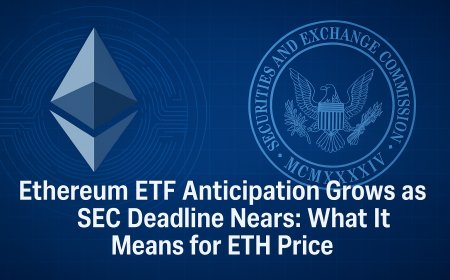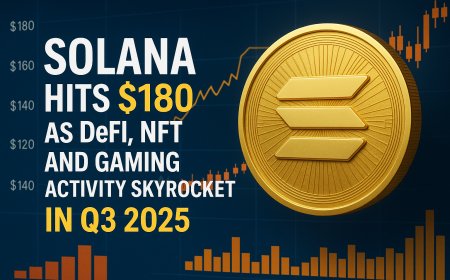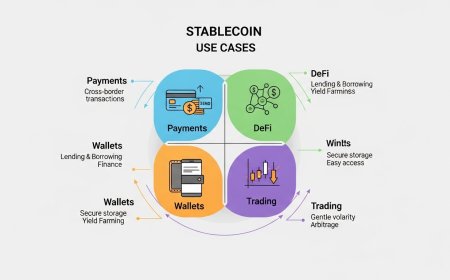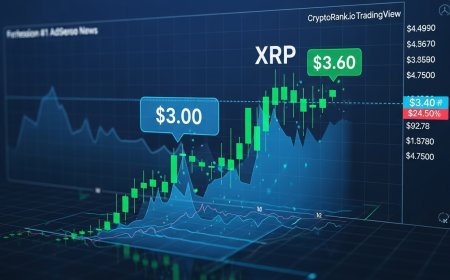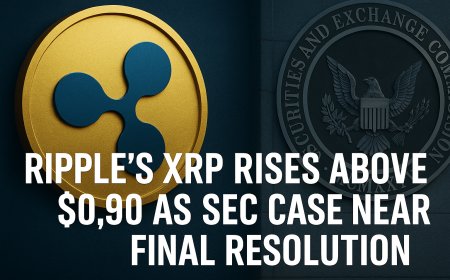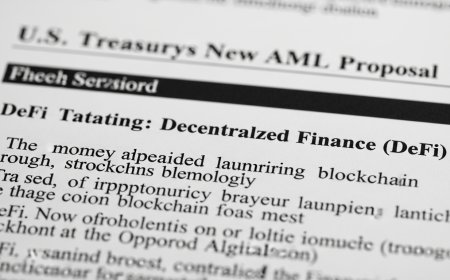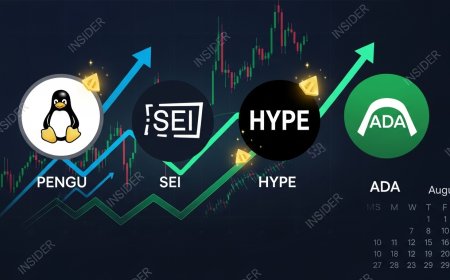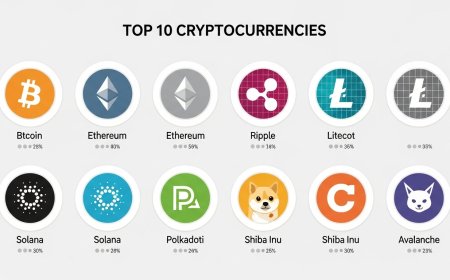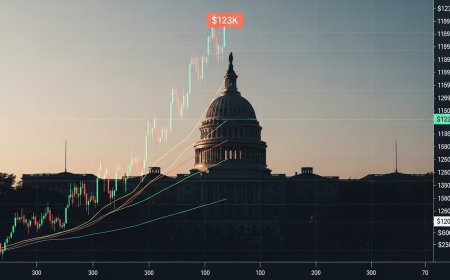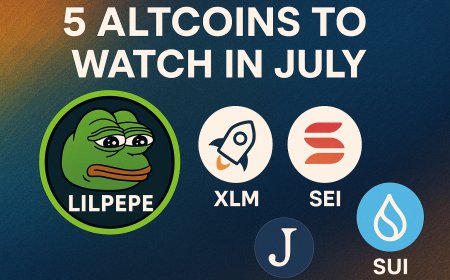The Ethereum ETF Surge That Everyone Missed: $726M in Inflows Signals the Altcoin Revolution
Ethereum ETFs recorded $726M inflows - their second-biggest day ever - while everyone focused on Bitcoin. Why this institutional rotation signals the start of altcoin season 2025.
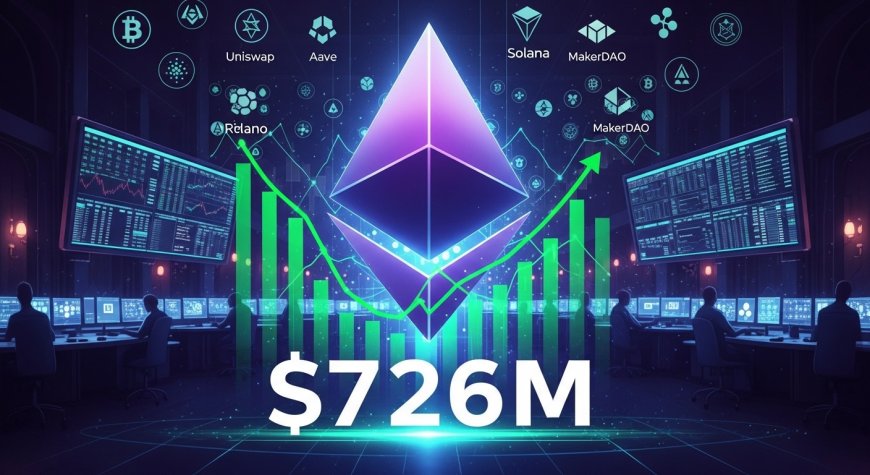
The Ethereum ETF Surge That Everyone Missed: $726M in Inflows Signals the Altcoin Revolution
While Bitcoin grabbed headlines, Ethereum ETFs quietly recorded their second-biggest day ever—here's why this changes everything
Something extraordinary happened that crypto media completely missed. While everyone celebrated Bitcoin's march past $120,000, Ethereum ETFs recorded their second-biggest day of inflows ever at $383.1 million, followed by another massive $726.6 million surge.
This isn't just good news for ETH holders—it's the signal that institutional money is finally rotating beyond Bitcoin into the broader crypto ecosystem. And if you understand what this rotation means, you'll see why we're about to witness the biggest altcoin season in crypto history.
The Numbers That Reveal Everything
Let's start with the jaw-dropping data that changes the entire institutional crypto narrative:
- $726.6 million net inflow into Ethereum ETFs in a single period
- $383.1 million recorded as the second-biggest day of inflows ever
- Massive institutional demand signaling beyond Bitcoin adoption
- Professional portfolio diversification into smart contract platforms
These aren't retail numbers—this is institutional capital rotation happening in real time.
Why Institutional Money Is Finally Ready for Ethereum
The Infrastructure Maturity Signal
Institutions don't buy assets—they buy infrastructure. Ethereum's transformation from experimental blockchain to institutional-grade financial infrastructure is now complete in their eyes.
What Changed:
- Proof of Stake: Environmental concerns eliminated
- Layer 2 Scaling: Transaction costs solved at institutional scale
- Regulatory Clarity: ETF approval provides compliance framework
- Custody Solutions: Professional-grade ETH storage available
The Diversification Imperative
Bitcoin proved crypto's legitimacy, but institutions need diversification within their crypto allocations. Ethereum provides exposure to different risk-return profiles than Bitcoin.
The Portfolio Theory:
- Bitcoin: Digital gold, store of value, inflation hedge
- Ethereum: Digital infrastructure, smart contracts, DeFi exposure
- Combined Allocation: Diversified crypto exposure with different drivers
The DeFi Backdoor
Institutional investors can't directly access DeFi protocols due to compliance requirements, but Ethereum ETFs provide indirect exposure to the entire decentralized finance ecosystem.
DeFi Value Capture:
- Transaction fees from DeFi activity
- Network effects from smart contract usage
- Platform value from ecosystem growth
- Staking rewards from network validation
The Rotation Pattern That's Changing Crypto
The Institutional Playbook
Smart institutional money follows a predictable pattern:
- Phase 1: Establish Bitcoin core position (✅ Complete)
- Phase 2: Add Ethereum for diversification (✅ Happening Now)
- Phase 3: Selective altcoin exposure through infrastructure plays
- Phase 4: Direct DeFi and smart contract platform investments
We're transitioning from Phase 1 to Phase 2, and the $726.6 million inflow proves it's accelerating.
The Risk Management Evolution
Institutions are realizing that crypto-only portfolios concentrated in Bitcoin carry concentration risk. Ethereum provides:
- Technology Diversification: Different blockchain architecture
- Use Case Diversification: Beyond store of value into utility
- Correlation Benefits: ETH and BTC don't move in perfect lockstep
- Growth Exposure: Earlier adoption curve than Bitcoin
What the Ethereum ETF Surge Really Means
The Smart Contract Legitimacy Signal
When institutions buy Ethereum ETFs, they're not just buying a cryptocurrency—they're betting on programmable money, decentralized applications, and the entire smart contract economy.
Institutional Validation Of:
- DeFi protocols and decentralized finance
- NFT marketplaces and digital ownership
- Smart contract automation and efficiency
- Decentralized autonomous organizations (DAOs)
The Developer Economy Bet
Ethereum has the largest developer ecosystem in crypto. Institutional ETH purchases represent bets on this developer productivity translating to network value.
Network Effects:
- More developers → More applications
- More applications → More users
- More users → More transaction fees
- More fees → Higher ETH value
The Enterprise Adoption Catalyst
Major corporations are building on Ethereum infrastructure. ETF flows suggest institutions see this enterprise adoption accelerating.
Corporate Ethereum Usage:
- Supply chain tracking and verification
- Decentralized identity management
- Cross-border payment infrastructure
- Tokenized asset management systems
The Altcoin Season Setup
The Liquidity Spillover Effect
Massive Ethereum ETF inflows create liquidity that eventually flows into the broader altcoin ecosystem. Here's how:
- ETF Inflows → Institutional ETH buying
- ETH Price Appreciation → Increased DeFi TVL
- DeFi Growth → Layer 2 and DeFi token demand
- Ecosystem Expansion → Selective altcoin institutional adoption
The Infrastructure Investment Thesis
Institutions buying Ethereum are essentially buying exposure to crypto's infrastructure layer. This legitimizes investments in:
Layer 1 Competitors:
- Solana, Avalanche, Polygon for scaling solutions
- Cardano, Polkadot for alternative smart contract platforms
Layer 2 Solutions:
- Arbitrum, Optimism, Polygon for Ethereum scaling
- StarkNet, zkSync for zero-knowledge scaling
DeFi Infrastructure:
- Uniswap, Aave, Compound for decentralized finance protocols
- Chainlink, The Graph for blockchain data services
The Timing Advantage
The Early Institutional Phase
Ethereum ETF adoption is roughly 6-12 months behind Bitcoin ETF adoption. This creates a timing arbitrage opportunity for informed investors.
The Pattern:
- Bitcoin ETFs launched → Massive inflows → Price appreciation
- Ethereum ETFs launching → Growing inflows → Price catch-up potential
- Altcoin ETFs next → Future inflows → Current positioning opportunity
The Regulatory Precedent
Ethereum ETF approval created the regulatory framework for all smart contract platform ETFs. Expect announcements for:
- Solana ETF applications
- Avalanche institutional products
- Layer 2 investment vehicles
- DeFi index fund development
Investment Strategy Implications
The New Asset Allocation Model
Traditional crypto portfolios were 100% Bitcoin or 70/30 BTC/ETH. The new institutional model is becoming:
Institutional Crypto Allocation:
- 50% Bitcoin: Core store of value position
- 30% Ethereum: Smart contract infrastructure exposure
- 20% Selective Altcoins: Diversified ecosystem exposure
The Ethereum ETF Advantage
Direct Ethereum ETF investment provides several advantages over direct ETH holding:
Professional Benefits:
- Regulatory Compliance: No custody or tax complications
- Institutional Grade: Professional fund management
- Portfolio Integration: Fits traditional investment accounts
- Professional Oversight: Fund manager expertise and risk management
The Altcoin Positioning Strategy
Ethereum ETF success creates opportunities in the broader ecosystem:
High-Conviction Plays:
- Layer 2 Tokens: Arbitrum, Optimism benefit from Ethereum growth
- DeFi Blue Chips: UNI, AAVE, COMP get institutional legitimacy
- ETH Competitors: SOL, AVAX, ADA positioned for ETF treatment
The Risk Management Framework
Diversification Beyond Bitcoin
Ethereum ETFs provide cryptocurrency diversification without leaving regulated investment vehicles:
Risk Reduction:
- Technology risk diversification across blockchains
- Use case diversification beyond store of value
- Regulatory risk spread across different crypto categories
- Market risk reduction through correlation benefits
The Professional Management Advantage
Ethereum ETFs provide professional crypto exposure without direct asset custody requirements:
Professional Benefits:
- Expert fund management and strategy
- Institutional-grade security and custody
- Regulatory compliance and reporting
- Professional risk management and oversight
The Global Competition Dynamic
The Innovation Arms Race
US Ethereum ETF success forces global financial centers to compete:
International Response:
- European Markets: Developing competing Ethereum products
- Asian Markets: Creating crypto infrastructure investment vehicles
- Emerging Markets: Building crypto-friendly investment frameworks
The Technological Leadership Signal
Ethereum ETF adoption signals technological leadership confidence:
- US institutions bet on Ethereum's technological advantage
- Global competitors forced to develop similar products
- Technological innovation becomes investment thesis
- Smart contract platforms gain legitimacy globally
Bottom Line: The Altcoin Institutional Revolution Begins
The $726.6 million Ethereum ETF surge represents more than crypto diversification—it's institutional validation of the entire smart contract economy. When traditional finance embraces Ethereum, they're embracing programmable money, decentralized applications, and the infrastructure of Web3.
This changes everything:
- Altcoins gain institutional legitimacy through Ethereum connection
- Smart contract platforms become investable asset class
- DeFi protocols receive indirect institutional backing
- Crypto diversification becomes professional portfolio standard
The institutions buying Ethereum ETFs today aren't just diversifying their crypto exposure—they're positioning for the programmable money revolution that transforms global finance.
The message is clear: Crypto institutional adoption extends far beyond Bitcoin, and the altcoin revolution is just beginning.
The smart money is already rotating. The question is whether you'll join them before the opportunity window closes.
What's Your Reaction?
 Like
0
Like
0
 Dislike
0
Dislike
0
 Love
0
Love
0
 Funny
0
Funny
0
 Angry
0
Angry
0
 Sad
0
Sad
0
 Wow
0
Wow
0









